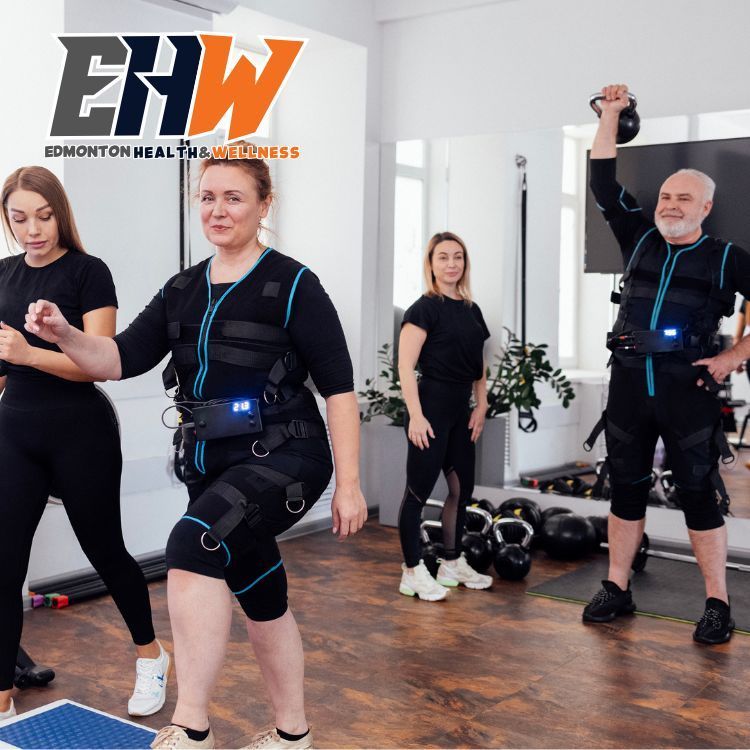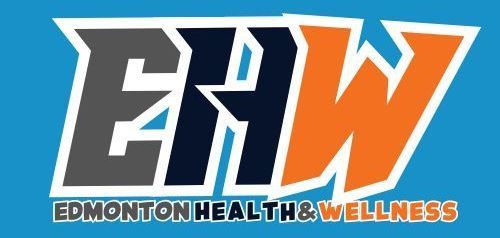How To Heal and Recover in Edmonton
Finding The Right Physiotherapist and Rehabilitation Center in Edmonton

Physiotherapy, also known as physical therapy, involves the assessment, diagnosis, and treatment of physical impairments or dysfunctions through non-invasive techniques. The aim is to alleviate pain, enhance mobility, and promote overall well-being. Rehabilitation, on the other hand, focuses on the comprehensive process of restoring an individual's physical, mental, and social well-being after an injury or illness. It encompasses various therapeutic interventions, exercise programs, and lifestyle modifications tailored to meet each person's unique needs in Edmonton.
Understanding the importance of physiotherapy and rehabilitation is crucial for anyone seeking to regain their physical health and improve their quality of life. By engaging in targeted interventions and collaborating with skilled physiotherapists, individuals can experience a transformative journey towards healing, recovery, and enhanced functionality. Throughout this blog post, we will explore the different aspects of physiotherapy and rehabilitation, providing a comprehensive guide to help individuals make informed decisions about their healthcare and embark on a path to renewed well-being.
- Understanding Physiotherapy
- The Rehabilitation Process
- Therapeutic Techniques in Physiotherapy
- Specialized Areas of Physiotherapy
- Benefits of Physiotherapy and Rehabilitation
- Enhanced Overall Well-being and Quality of Life
- Finding the Right Physiotherapist and Rehabilitation Center
Understanding Physiotherapy
Physiotherapy is a specialized field of healthcare that encompasses a wide range of interventions and techniques aimed at addressing physical impairments, injuries, and disabilities. It involves the application of evidence-based practices, scientific knowledge, and manual skills to promote healing, improve mobility, and enhance overall physical function. Physiotherapists, also known as physical therapists, are highly trained professionals who play a crucial role in assessing, diagnosing, and treating individuals with various conditions.
The scope of physiotherapy is vast and encompasses multiple areas, including orthopedics, neurology, cardiopulmonary care, pediatrics, and geriatrics. Physiotherapists work closely with their patients to understand their specific needs and develop personalized treatment plans that may include manual therapy techniques, exercise programs, and the use of modalities and assistive devices. By focusing on the restoration of physical function and the alleviation of pain, physiotherapy not only helps individuals recover from injuries but also prevents future complications and enhances overall well-being. With their extensive knowledge and expertise, physiotherapists guide patients through every step of their healing journey, empowering them to actively participate in their own recovery process.
The Rehabilitation Process
The rehabilitation process is a comprehensive and structured approach that aims to facilitate healing, restore function, and maximize independence for individuals recovering from injuries, surgeries, or debilitating conditions. It involves a series of stages that collectively contribute to the overall success of the rehabilitation journey. The process begins with an initial assessment and goal setting, where the physiotherapist evaluates the individual's condition, identifies areas of improvement, and collaboratively sets realistic goals with the patient. This step is crucial in establishing a baseline and providing a clear direction for the subsequent stages.
Following the assessment, the treatment planning stage involves designing a personalized rehabilitation program tailored to the individual's specific needs. This may include a combination of therapeutic interventions such as manual therapy, exercise therapy, and the use of modalities or assistive devices. The physiotherapist carefully selects the most appropriate techniques and interventions to address the individual's unique challenges and goals. As the treatment progresses, regular monitoring and adjustments are made to ensure that the program remains effective and aligned with the individual's evolving needs. This ongoing evaluation allows for modifications and refinements to be made to the treatment plan, ensuring optimal progress and outcomes. The rehabilitation process emphasizes a collaborative approach, with the physiotherapist working closely with the patient, their family, and other healthcare professionals to ensure a holistic and coordinated approach to healing and recovery. By actively involving the individual in their own rehabilitation, they are empowered to take ownership of their health, make informed decisions, and actively participate in the achievement of their goals.
Therapeutic Techniques in Physiotherapy throughout Edmonton
- Manual Therapy: Manual therapy techniques form a cornerstone of physiotherapy interventions. These hands-on techniques are performed by skilled physiotherapists to manipulate and mobilize joints, muscles, and soft tissues. Manual therapy aims to reduce pain, increase joint mobility, and improve tissue flexibility. Techniques such as joint mobilization, soft tissue massage, and stretching are utilized to restore proper alignment, promote healing, and enhance overall function. The precise application of manual therapy techniques by a trained professional can have a profound impact on pain reduction and improved physical function.
- Exercise Therapy: Exercise therapy plays a vital role in physiotherapy by promoting strength, flexibility, and overall physical fitness. Tailored exercise programs are designed to meet the specific needs and goals of each individual. These programs may include a combination of therapeutic exercises, such as stretching, strengthening exercises, aerobic conditioning, and balance training. Exercise therapy helps to rebuild muscle strength, enhance joint stability, improve range of motion, and increase cardiovascular fitness. Additionally, it aids in postural correction and promotes the proper mechanics of movement. Physiotherapists carefully guide patients through exercise routines, ensuring proper form, progression, and safety to optimize the benefits of exercise in the rehabilitation process.
- Modalities and Equipment: Physiotherapists may also employ various modalities and equipment to complement the therapeutic interventions. These may include heat or cold therapy, ultrasound, electrical stimulation, laser therapy, or traction. Modalities are used to manage pain, reduce inflammation, promote tissue healing, and enhance circulation. Additionally, assistive devices such as braces, crutches, walkers, or orthotics may be recommended to support mobility, provide stability, and aid in the rehabilitation process. The selection and application of modalities and equipment are based on the specific needs of each patient and are integrated into the overall treatment plan to optimize outcomes.
By combining manual therapy, exercise therapy, and the use of modalities and equipment, physiotherapists employ a multifaceted approach to address pain, restore function, and improve overall physical well-being. These therapeutic techniques are tailored to the individual's condition, ensuring that treatment is personalized and optimized for their unique needs and goals. Through the skilled application of these techniques, physiotherapy empowers individuals to regain control over their health, promoting healing, and facilitating a successful recovery process.

Specialized Areas of Physiotherapy
Orthopedic Physiotherapy
Orthopedic physiotherapy focuses on the assessment, treatment, and rehabilitation of musculoskeletal conditions and injuries. This includes fractures, sprains, strains, tendonitis, and post-surgical rehabilitation. Orthopedic physiotherapists utilize a variety of techniques such as manual therapy, exercise prescription, and therapeutic modalities to promote healing, reduce pain, restore mobility, and improve strength and function. They work closely with individuals to develop individualized treatment plans that address specific orthopedic needs and goals.
Neurological Physiotherapy
Neurological physiotherapy is dedicated to the rehabilitation of individuals with neurological disorders or conditions such as stroke, spinal cord injuries, multiple sclerosis, Parkinson's disease, and traumatic brain injuries. Neurological physiotherapists focus on improving motor control, balance, coordination, and functional mobility. They employ specialized techniques such as neurodevelopmental treatment (NDT), Bobath concept, and task-specific training to facilitate movement recovery and enhance quality of life for individuals with neurological impairments. Additionally, they may use adaptive equipment and technologies to support independence and optimize functioning.
Cardiopulmonary Physiotherapy
Cardiopulmonary physiotherapy is concerned with the assessment and management of cardiovascular and respiratory conditions. Physiotherapists specializing in this area work with individuals with conditions such as heart disease, chronic obstructive pulmonary disease (COPD), asthma, and post-cardiac surgery. Cardiopulmonary physiotherapy interventions include breathing exercises, airway clearance techniques, aerobic conditioning, and cardiovascular training. These interventions aim to improve lung function, enhance cardiovascular fitness, and promote energy conservation to optimize overall cardiopulmonary health.
Pediatric Physiotherapy
Pediatric physiotherapy focuses on the evaluation, treatment, and rehabilitation of infants, children, and adolescents with developmental delays, congenital disorders, or injuries. Pediatric physiotherapists work closely with children and their families to address motor skill development, improve movement patterns, and enhance overall physical function. They employ play-based therapy, exercises, and activities to promote gross motor development, coordination, balance, and functional independence.
Geriatric Physiotherapy
Geriatric physiotherapy specializes in the care of older adults, addressing age-related conditions, functional decline, and mobility issues. Geriatric physiotherapists focus on promoting independence, preventing falls, managing chronic pain, and optimizing physical function and quality of life in the elderly population. They develop customized exercise programs, balance training, and fall prevention strategies to address the unique needs and challenges associated with aging.
Specialized areas of physiotherapy ensure that individuals receive targeted and tailored care for their specific conditions and age-related needs. Physiotherapists with expertise in these areas possess advanced knowledge and skills to address the complexities of various conditions, providing specialized interventions that aid in recovery, promote functional improvement, and optimize overall well-being for their patients.
Benefits of Physiotherapy and Rehabilitation
Physiotherapy and rehabilitation offer a multitude of benefits for individuals seeking to restore their physical health, recover from injuries, and improve their overall well-being. Here are some key benefits:
Pain Management and Reduction
Physiotherapy employs various techniques, such as manual therapy, therapeutic exercises, and modalities, to alleviate pain and discomfort. Through targeted interventions, physiotherapists help individuals manage acute and chronic pain, whether it's related to musculoskeletal conditions, neurological disorders, or post-surgical recovery. By addressing the underlying causes of pain and implementing personalized treatment plans, physiotherapy provides effective pain relief and enhances overall quality of life.
Improved Mobility, Strength, and Balance
Physiotherapy interventions are designed to restore and enhance mobility, strength, and balance. Through exercises, stretches, and manual techniques, physiotherapists help individuals regain range of motion, improve muscle strength, and enhance coordination. This is particularly beneficial for individuals recovering from surgeries, injuries, or neurological conditions that may have caused physical impairments. By focusing on improving physical function, physiotherapy enables individuals to regain independence, perform daily activities with ease, and participate in their desired recreational or athletic pursuits.
Faster Recovery and Reduced Risk of Complications
Physiotherapy plays a crucial role in expediting the recovery process and minimizing the risk of complications. Through targeted interventions and progressive rehabilitation programs, physiotherapists promote tissue healing, enhance circulation, and prevent muscle atrophy. By addressing the specific needs of each individual, physiotherapy optimizes the recovery timeline, enabling individuals to return to their normal activities and lifestyles sooner.
Prevention of Future Injuries
Physiotherapy not only focuses on healing and recovery but also emphasizes injury prevention. By identifying and addressing movement dysfunctions, postural imbalances, and weak areas, physiotherapists help individuals improve their biomechanics and reduce the risk of future injuries. This preventive approach is particularly valuable for athletes, individuals with physically demanding occupations, and those with a history of recurrent injuries.
Enhanced Overall Well-being and Quality of Life
Physiotherapy goes beyond physical rehabilitation; it positively impacts an individual's overall well-being and quality of life. By improving physical function, reducing pain, and promoting independence, individuals experience a boost in confidence and emotional well-being. Physiotherapy also empowers individuals to actively participate in their own recovery, providing them with the tools, knowledge, and support needed to maintain their health and well-being long-term.
Physiotherapy and rehabilitation offer a holistic approach to healing and recovery, providing individuals with the means to regain control of their physical health, alleviate pain, improve mobility, and enhance their overall quality of life. Through personalized care and evidence-based interventions, physiotherapy empowers individuals to overcome physical challenges, optimize their physical function, and lead active and fulfilling lives.
Finding the Right Physiotherapist and Rehabilitation Center
When it comes to physiotherapy and rehabilitation, finding the right physiotherapist and rehabilitation center is crucial to ensure optimal care and successful outcomes. Here are some important factors to consider:
Expertise and Credentials
Look for a physiotherapist who has the necessary expertise and credentials in the specific area of rehabilitation you require. Check their qualifications, certifications, and any specialized training they have undergone. It's important to find a physiotherapist who has experience and knowledge in treating your specific condition or injury. Additionally, consider their track record of success and patient testimonials, as these can provide insights into the quality of care they provide.
Communication and Rapport
A strong rapport and effective communication with your physiotherapist are vital for a successful rehabilitation journey. Choose a physiotherapist who actively listens to your concerns, takes the time to understand your goals, and explains the treatment plan in a clear and understandable manner. The physiotherapist should make you feel comfortable, respected, and supported throughout the process. Open and transparent communication between you and your physiotherapist will ensure that your needs and progress are properly addressed.
Facilities and Resources
Evaluate the rehabilitation center's facilities and resources to ensure they are well-equipped to provide the necessary treatments and interventions. Consider factors such as the availability of advanced equipment, exercise areas, and private treatment rooms. Additionally, inquire about the range of services offered, such as specialized programs, access to additional healthcare professionals, and continuity of care. A well-established rehabilitation center with comprehensive resources can provide a multidisciplinary approach and seamless coordination of care, enhancing the effectiveness of your rehabilitation journey.
Personalized Care and Treatment Plans
Each individual's rehabilitation needs are unique, so it's essential to find a physiotherapist and rehabilitation center that prioritize personalized care and individualized treatment plans. A tailored approach that considers your specific condition, goals, and preferences will yield better outcomes. Discuss with the physiotherapist how they customize treatment plans, set goals, and track progress. A collaborative approach that involves you in decision-making and goal-setting ensures that your rehabilitation journey aligns with your needs and priorities.
By considering these factors and conducting thorough research, you can find a physiotherapist and rehabilitation center that best suits your needs, ensuring that you receive the highest quality of care, support, and expertise throughout your healing and recovery process.
Remember that finding the right fit may require some exploration, but the investment in your health and well-being is well worth it.

Get in Contact with Us
If you’ve experienced an injury or need help managing pain or mobility issues, Edmonton Health and Wellness is here to guide you.
📞 Call us today at 587-412-5173 to schedule your first appointment. Mention this blog post to receive your initial visit for just $100!
📍 Visit us at any of our locations across Edmonton, Sherwood Park, or St. Albert, or fill out our online form for a callback.
💡 Your health and recovery matter—start your journey to wellness today!









